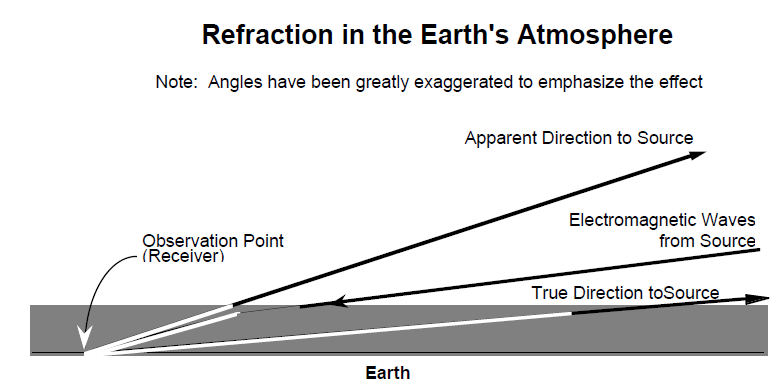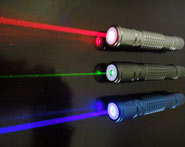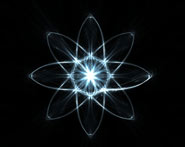


 الفيزياء الكلاسيكية
الفيزياء الكلاسيكية
 الكهربائية والمغناطيسية
الكهربائية والمغناطيسية
 علم البصريات
علم البصريات
 الفيزياء الحديثة
الفيزياء الحديثة
 النظرية النسبية
النظرية النسبية
 الفيزياء النووية
الفيزياء النووية
 فيزياء الحالة الصلبة
فيزياء الحالة الصلبة
 الليزر
الليزر
 علم الفلك
علم الفلك
 المجموعة الشمسية
المجموعة الشمسية
 الطاقة البديلة
الطاقة البديلة
 الفيزياء والعلوم الأخرى
الفيزياء والعلوم الأخرى
 مواضيع عامة في الفيزياء
مواضيع عامة في الفيزياء|
Read More
Date: 28-2-2016
Date: 3-9-2020
Date: 3-9-2020
|
Refraction
Refraction is the deflection or bending of electromagnetic waves when they pass from one kind of transparent medium into another. The index of refraction is the ratio of the speed of electromagnetic energy in a vacuum to the speed of electromagnetic energy in the observed medium. The law of refraction states that electromagnetic waves passing from one medium into another (of a differing index of refraction) will be bent in their direction of travel.
Usually, substances of higher densities have higher indices of refraction. The index of refraction of a vacuum, by definition, is 1.0. The index of refraction of air is 1.00029, water is 1.3, glass about 1.5, and diamonds 2.4. Since air and glass have different indices of refraction, the path of electromagnetic waves moving from air to glass at an angle will be bent toward the perpendicular as they travel into the glass. Likewise, the path will be bent to the same extent away from the perpendicular when they exit the other side of glass.

In a similar manner, electromagnetic waves entering Earth's atmosphere from space are slightly bent by refraction. Atmospheric refraction is greatest for radiation from sources near the horizon (below about 15° elevation) and causes the apparent altitude of the source to be higher than the true height. As Earth rotates and the object gains altitude, the refraction effect decreases, becoming zero at zenith (directly overhead). Refraction's effect on sunlight adds about 5 minutes to the daylight at equatorial latitudes, since the sun appears higher in the sky than it actually is.




|
|
|
|
"عادة ليلية" قد تكون المفتاح للوقاية من الخرف
|
|
|
|
|
|
|
ممتص الصدمات: طريقة عمله وأهميته وأبرز علامات تلفه
|
|
|
|
|
|
|
المجمع العلمي للقرآن الكريم يقيم جلسة حوارية لطلبة جامعة الكوفة
|
|
|